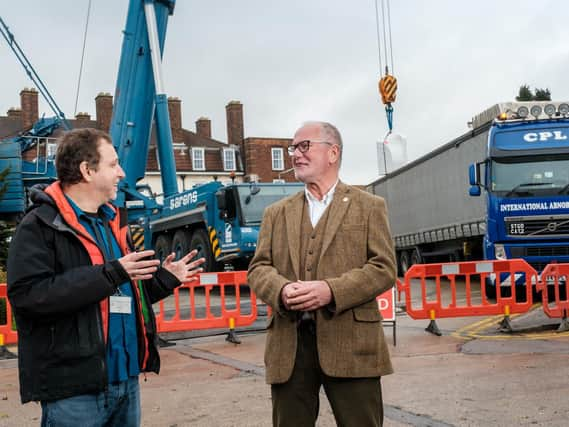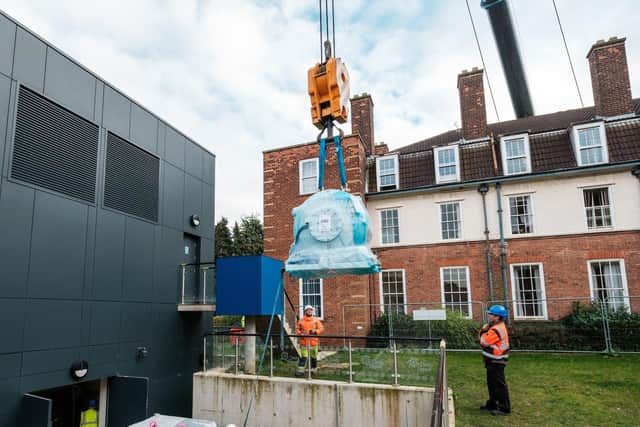Milestone in Daisy Appeal to improve scanning and research for cancer, heart disease and dementia


A 13-ton “cyclotron”, which will produce radioactive tracers used when scanning for a number of potentially lethal diseases, was craned into the new £8.5m molecular imaging research centre at Castle Hill Hospital near Hull on Sunday.
Once up and running, the tracers will be delivered direct to the immediately adjacent Jack Brignall Centre, where more than 3,000 people had diagnostic scans in 2019.
Advertisement
Hide AdAdvertisement
Hide AdThey expect to be producing tracers routinely for patients from early summer, following Medicines and Healthcare products Regulatory Agency sign-off.


Professor Nick Stafford, chair of the Daisy Appeal, thanked supporters, saying it was “a very exciting day for the charity and the healthcare community in our region”.
He said: “I’m delighted to see something we have been talking about for ten years on the end of the crane being taken into the centre. The response from the locality has been terrific, and I can only say ‘thank you to everybody.’”
The cyclotron will be one of only a handful in the country based on a hospital site and will allow staff at Cottingham to produce tracers onsite as well as developing their own.
Advertisement
Hide AdAdvertisement
Hide AdThe team is already talking to pharmaceutical companies about bringing in clinical trials to a project which has drawn highly-skilled researchers to the region.
“It has attracted some people back to Yorkshire,” said Steve Archibald, Professor in Molecular Imaging at the University of Hull. “We have one staff member who was working down in one of the big centres in London and saw this as an opportunity to come back to the north.”
Prof Archibald said the technology will maximise benefits to patients from across East Yorkshire and Northern Lincolnshire by making available a wide range of imaging and diagnostic techniques.
The new centre will initially be able to produce Fluorine 18 radiotracers, which are currently used in most scans, but which have previously had to be sourced elsewhere.
Advertisement
Hide AdAdvertisement
Hide AdThey also hope to produce new prostate cancer imaging agents, which the NHS is expected to approve for routine use next year, and which can show up small tumours “clear as day”.
Prof Archibald said: “The provision of cutting-edge cyclotron technology in Hull elevates us to the level of a handful of clinical sites in the UK and, when combined with our expertise and our own unique technology, will enable us to deliver improved clinical imaging to diagnose and monitor treatment response in cancer, cardiac and neurological patients.
“The technology will also improve our research, which is already internationally competitive, and attract clinical trials to Hull to further improve standards of patient care.”
The Daisy Appeal is keen to stress that it’s not the end of the road for fundraising, with another £500,000 still to be raised.
Fundraisers are keen to hear from like to hear from anybody who can help, whether with sizeable corporate donations or small amounts from community events.